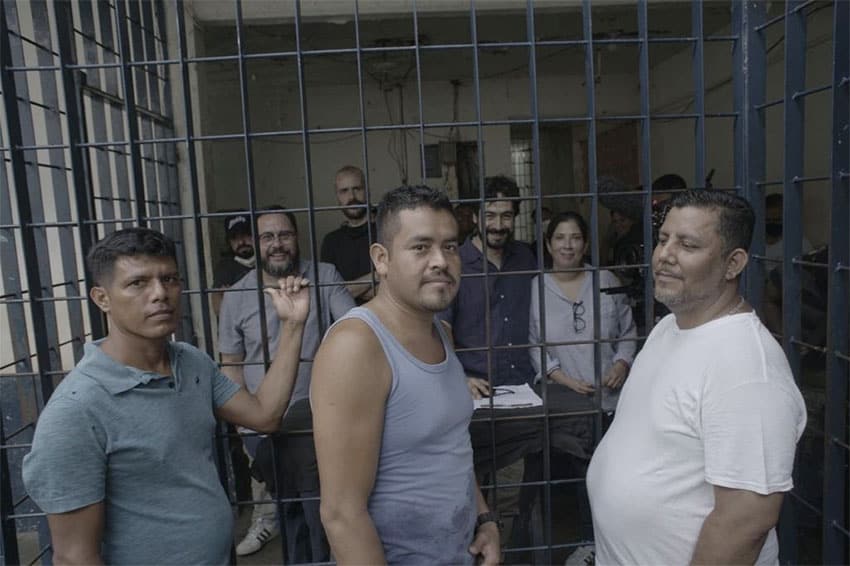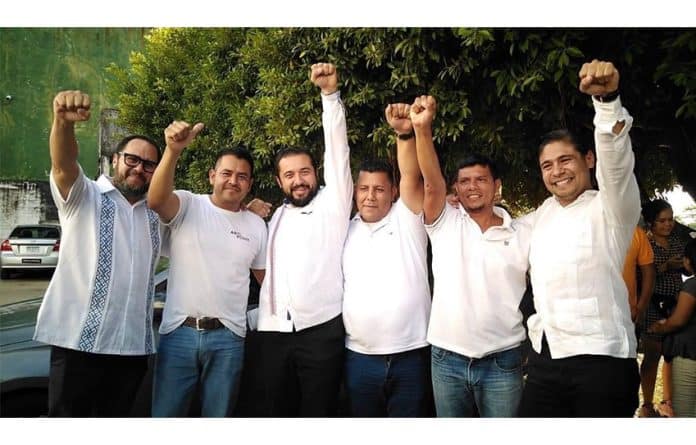On Thursday, the Mexican Supreme Court (SCJN) unanimously ordered the release of three men who have been detained since 2015 on charges of attempted kidnapping. Juan Luis López García, Héctor Muñoz Muñoz, and Gonzalo García Hernández were sentenced to 50 years in prison in an irregular criminal process that was the subject of the documentary “Reasonable Doubt.”
The three men, along with Darwin Morales Ortiz, were arrested on kidnapping charges following a minor car accident. Only one of the men was directly involved in the car accident, and the men did not know each other before they were detained. While Morales Ortiz was freed shortly after his arrest, the other three men remained imprisoned. Their defense alleged a disregard for due process and a lack of evidence.
The legal process was marked by major investigatory irregularities, and the three men reported being subject to torture while they were detained.

The incident came at the same time as the rollout of a 2008 legal reform attempting to make the Mexican justice system more transparent, and with stronger accountability and more protections for victims and the accused. Still, mistreatment of those detained remains a major problem in Mexico, and the reform has failed to curb widespread impunity.
The “Reasonable Doubt” docuseries, directed by Roberto Hernández and released in November 2021 on Netflix, shows the shortcomings in the case, demonstrating how the Tabasco state authorities tried to keep the three men detained despite the lack of available evidence.
The documentary collected testimonies from the detained men and their family members while closely analyzing Mexico’s flawed justice system. Hernández interviewed hundreds of incarcerated individuals, learning that most of them had been tortured, and that their sentences were based overwhelmingly on flawed confessions and testimonies.
Due to threats, Hernández was forced to leave Mexico, and the defense attorney for the accused had to leave Tabasco after his van exploded.
The SCJN ruled that the Tabasco prosecutor’s office did not adequately prove the guilt of the defendants. Chief Justice Arturo Zaldívar noted that the sentence was based entirely on uncorroborated statements from the alleged victim and his son, which had several inconsistencies.
“It is impossible to use the accusation of the victim against the defendants, much less to defeat the presumption of innocence. The defense raised a solid and coherent claim of innocence,” Zaldívar said.
Justice Yasmín Esquivel noted the degree to which the Mexican penal system tends to imprison innocent people.
“We must not remain complicit in the face of what happened,” she said.
According to Human Rights Watch, Mexico’s justice system remains flawed, regularly denying due process for the accused. Torture is still commonly used to extract confessions, and only 5.2% of crimes are ever solved.
Beyond mandating immediate freedom for the accused, it is possible that the Court’s decision will lead to more far-reaching legal reforms to improve trial conditions and prevent the widespread use of torture.
With reports by Animal Político and La Silla Rota
